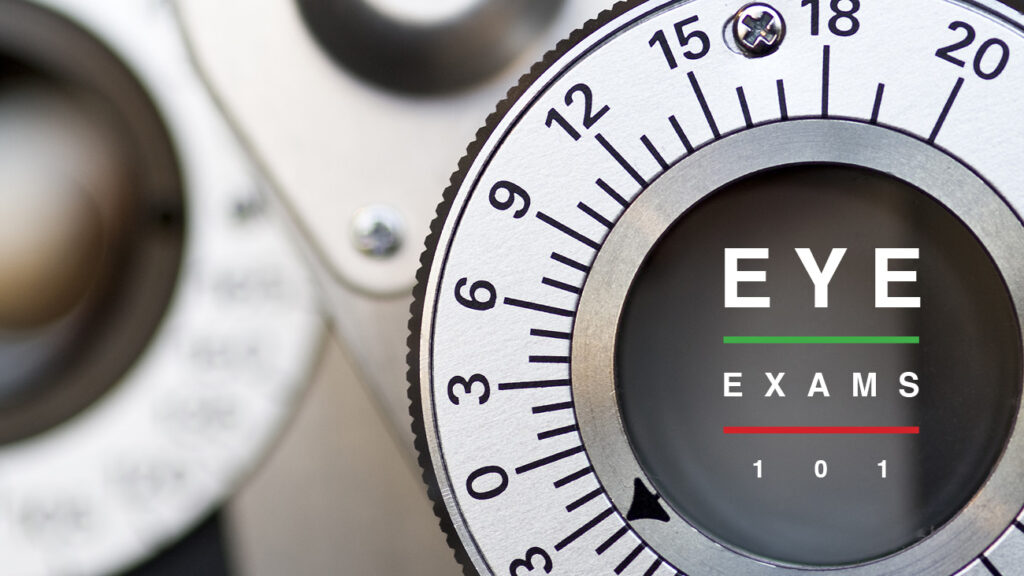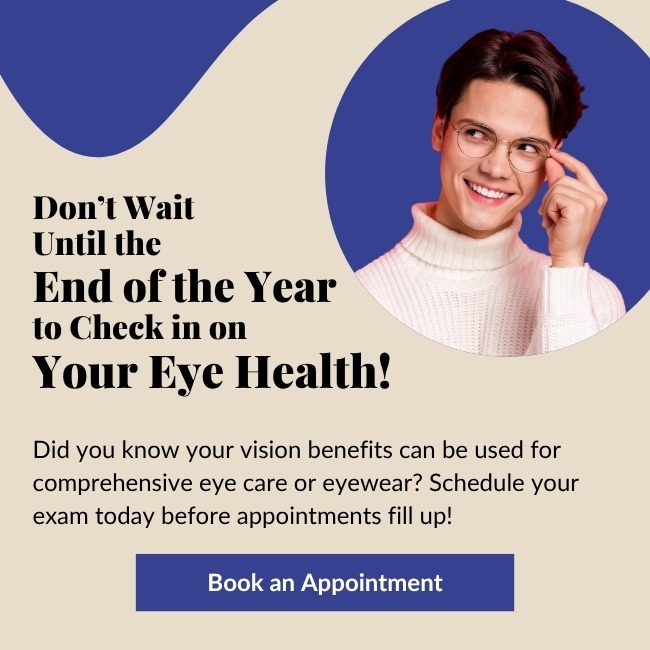Regular comprehensive eye exams are key to early detection of eye-related diseases to keep you seeing your best every day. Adults should have a comprehensive eye exam every 1-2 years. Children should have an eye exam as early as 6 months, before they start school, and then every 1-2 years. If you or your family need a comprehensive eye exam, contact our office to schedule an appointment.
We often get questions about what an eye exam is like, so we’ve created an overview of a typical eye exam in our office.
Eye Exam Basics
What does an eye exam test for? Eye exams test your visual acuity and the overall health of your eye.
Why is an eye exam important? Eye exams check for early signs of serious eye and health problems; some of which may not present with any symptoms.
Who gives an eye exam? Your eye exam is performed by a licensed eye doctor.
Terms to know:
- Ophthalmologist: An ophthalmologist is a medical doctor (MD) who specializes in eye care. Ophthalmologists can prescribe eyeglasses and contacts but commonly specialize in treating medical conditions of the eye and performing eye surgery
- Optometrist: Optometrists are eye doctors who prescribe glasses, contacts, vision therapy, and medication to treat eye diseases. Optometrists are not trained or licensed to perform eye related surgery.
- Optician: An optician is not an eye doctor, but is an eye care professional who fits, adjusts, and repairs your eyeglasses. They can also help patients learn to apply, remove, and care for contact lenses.
What to prepare for your appointment?
Before your comprehensive eye exam, there are several materials you can prepare. First, create a list of all your prescription and non-prescription medications you take along with the dosage. This will help your eye doctor determine any vision risks you may have. Bring your most recent pair of eyeglasses or contact lenses, if you have them. Don’t forget to have a copy of your vision insurance card and other medical insurance cards with you. To learn more about the insurance providers our office accepts and other payment options, please call our office directly. Finally, bring a list of questions or concerns you may have about your eyesight to discuss with your eye doctor.
What to expect during your appointment?
Prepare for your eye exam to take an hour or more depending on the number of tests your eye doctor needs to evaluate your vision and eye health. A typical comprehensive exam is a series of visual tests to inform your eye doctor about your vision.
These tests help determine:
- Sharpness of near and distance vision
- Color blindness
- Lazy eye
- Ability to follow moving object and/or move between two separate fixed objects
- Depth perception
- Determine your eyeglass prescription
- Structures of the eye
- Glaucoma test
- Eye drop test to look inside your eyes
- Blind spots
What to do after the exam?
Following your exam, you will have the opportunity to explore the various frames and lenses found in our optical space. An optician will be available to assist you in selecting a pair of eyewear that best fits your lifestyle needs. If you choose to wear contact lenses, you will need to schedule a contact lens fitting appointment.
Once your new eyewear is ready to be picked-up, an optician will adjust your frame to fit you best and make it comfortable for everyday wear.
Finally, schedule your follow-up appointment for the next year. Regular comprehensive eye exams are essential in maintaining healthy vision. If you ever experience any sudden vision changes or eye injuries be sure to contact our office.



